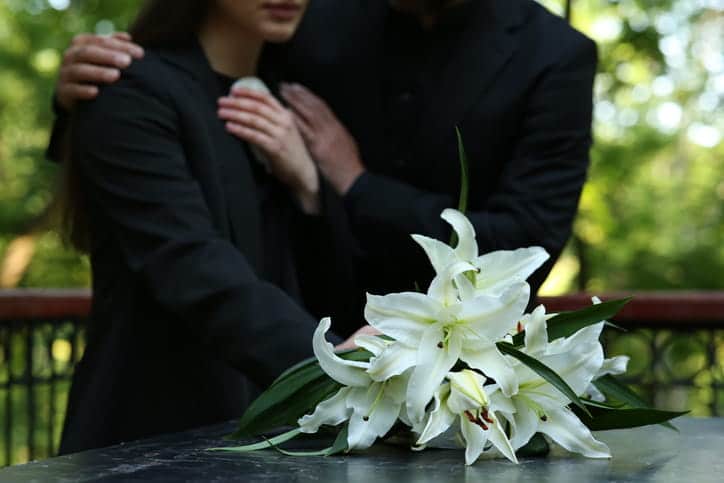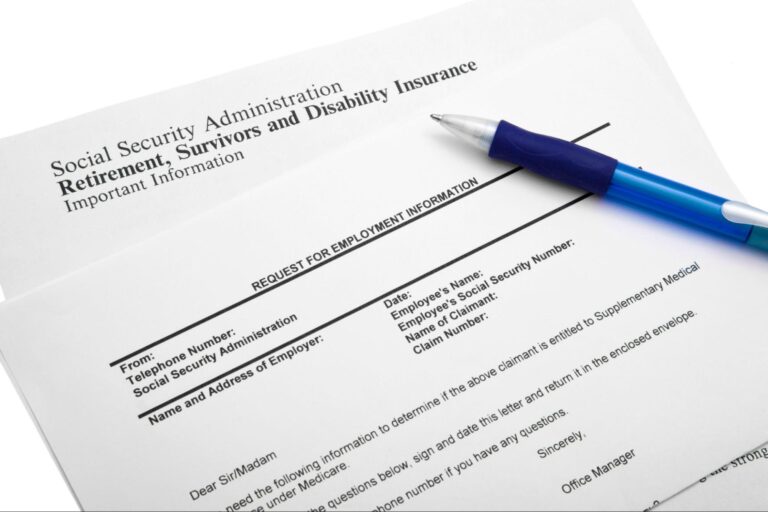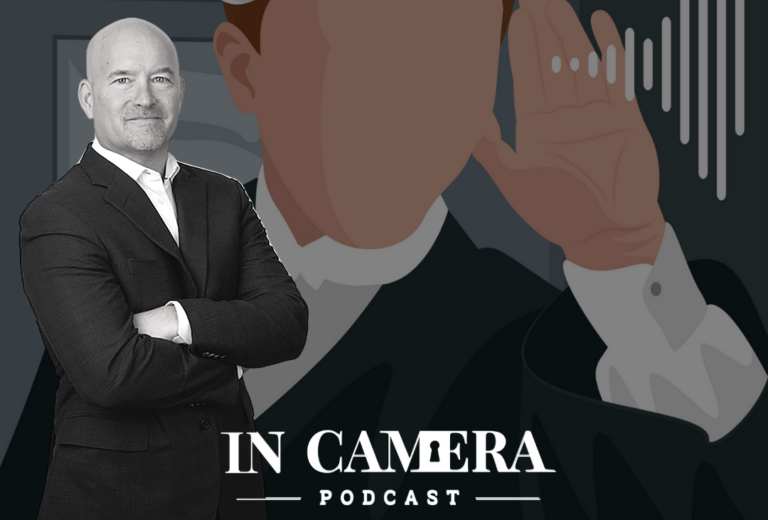Wrongful Death: Criminal Charges vs. Civil Suit

Suppose a person dies because of another person’s negligence or deliberate actions. The decedent has died a wrongful death. Wrongful deaths include people killed in traffic accidents and homicide victims. Since the term applies to accidental deaths and deaths from criminal actions, family members coping with the wrongful death of a loved one may wonder if wrongful death cases are civil or criminal.
Different processes and outcomes apply to criminal and civil cases. If you’re unfortunately coping with a wrongful death, you may wonder about the benefits of pursuing criminal charges vs. filing a wrongful death civil suit. Learning about wrongful death laws, the potential outcomes of legal proceedings in criminal courts and civil courts, and how criminal and civil proceedings work can help you understand why to file a civil lawsuit and how a wrongful death lawyer can help you get justice through a civil case.
Contact our wrongful death attorneys for assistance today.
Is a wrongful death case criminal or civil?
A wrongful death case is a criminal case if the actions leading to the decedent’s death were criminal. Each year, 26,031 people die by homicide in the U.S. Suppose someone breaks into a house to steal valuables. The homeowner confronts them, and they fight. The thief knocks the homeowner to the floor, and the homeowner’s head hits a table on the way down. The blow causes an intracranial hematoma, resulting in the homeowner’s death. The thief could be charged with second-degree murder.
Although the homeowner’s death may be ruled a homicide and there may be a criminal trial, the homeowner’s family can also pursue a civil case. The only requirement to file a civil lawsuit is that the wrongful death stemmed from someone’s deliberate actions or negligence. In this example, the thief deliberately struck the homeowner, causing their death.
Suppose a person’s driving home from work and another driver looks away from the road for a moment and causes an accident resulting in the first driver’s death. The decedent’s family can pursue a civil case because the driver’s negligence caused their loved one’s death. There are grounds for a civil lawsuit, even if the state attorney’s office doesn’t press criminal charges.
Events that often lead to wrongful death lawsuits
Events commonly leading to wrongful death civil lawsuits include the following:
- Medical malpractice: Studies indicate more than 250,000 people in the U.S. die from medical errors annually
- Slip-and-fall accidents: In 2021, slip-and-fall accidents in the U.S. claimed 44,686 lives
- Traffic accidents: Traffic accidents caused over 38,000 deaths in 2020
- Workplace accidents: Electrocution, traffic accidents, fires, and falls are some causes of workplace fatalities. Workplace slip-and-fall accidents caused 850 deaths in 2021.
Wrongful death events that also may cause criminal charges to be filed
Any wrongful death event can lead to criminal charges if an investigation reveals the accused broke criminal laws. Suppose a person died in a slip-and-fall accident at work. Initially, it may have seemed like a tragic accident. However, investigators learned a manager poured liquid on the floor to make the worker slip and fall. Since their deliberate actions caused another person’s death, they could face criminal charges.
Traffic accident fatalities can also lead to criminal charges. Suppose a person’s driving while under the influence of alcohol, and they cause a fatal accident. They could face criminal charges.
The burden of proof in a criminal case vs. a civil case
The standard for proving criminal cases is higher than proving liability in a civil trial. There must be no doubt about the defendant’s guilt for them to be convicted in a criminal trial. The state’s attorney must convince all jurors the evidence proves the defendant’s guilt.
The standard for winning a civil proceeding involves likelihood. Negligence is based on what the majority of reasonable people would do under the same circumstances. You don’t need to eliminate all doubt about the defendant’s guilt, either. The burden of proof for conviction requires showing the defendant is most likely guilty.
Can you win a civil case if there is no criminal conviction?
Sometimes, the state’s attorney’s office may not press charges. Although they may believe the at-fault person committed a crime, they may determine that there isn’t enough evidence to secure a criminal conviction. Sometimes, the state’s attorney presses charges but loses at trial.
The victim’s family may still proceed with a civil case. For example, although O.J. Simpson was acquitted of murder, the victim’s families won their civil case.
Who can file a wrongful death civil claim?
You must be an eligible family member to file wrongful death claims in Colorado. The decedent’s surviving spouse and children may take legal action. The decedent’s parents can also file a civil suit. However, they must wait 12 months if the decedent has a surviving spouse or children.
Schedule a free consultation to talk to a lawyer about your wrongful death case today.
Who files criminal charges?
Prosecutors file criminal charges against those responsible for wrongful deaths stemming from criminal actions. Typically, the state’s attorney’s office handles investigations, reviews evidence, and determines whether they have sufficient evidence to file charges.
What damages can be recovered in a civil wrongful death lawsuit?
The purpose of a wrongful death criminal trial is to secure a conviction leading to a prison sentence. The goal of a wrongful death civil suit is to secure a judgment or settlement for the decedent’s family.
Courts can award up to three types of damages in wrongful death civil suits. Punitive damages apply to cases involving gross negligence or misconduct leading to a person’s death. Suppose a person is street racing in a heavily trafficked area and driving 50 mph over the speed limit. They cause a fatal accident. The victim’s family can seek punitive damages because the accused was deliberately reckless. However, suppose a person driving 10 mph over the speed limit caused a fatal accident. In that case, proving gross negligence and securing punitive damages may be more challenging.
All family members can seek economic and non-economic damages. Economic damages are monetary damages reimbursing family members for expenses, including the following:
- Burial costs
- Funeral expenses
- Lost wages
- Medical bills
Non-economic damages are non-monetary damages recognizing the personal impact the decedent’s death has on their loved ones and can include compensation for the following:
- Grief
- Loss of consortium
- Pain and suffering
- Trauma
How long does a family have to file a wrongful death lawsuit?
Colorado gives the decedent’s family members 24 months to file a wrongful death civil suit. The decedent’s surviving spouse can file a suit immediately. If there’s a surviving spouse, surviving children need the spouse’s permission to file in the first year; otherwise, surviving children must wait one year before filing a civil claim. The decedent’s parents can file immediately if the victim has no surviving spouse or children.
How can a wrongful death lawyer help?

At Elite Litigation Group, our legal team has first-hand experience dealing with the unimaginable tragedy of a wrongful death. After losing his mother in a traffic accident, Kyle Bachus navigated the legal system as a victim and wrote Unthinkable as a guide for wrongful death victims’ family members.
We understand the aftermath of a wrongful death is traumatic, frightening, and stressful. That’s why our Victim’s Advocate team includes law enforcement and legal professionals who understand your suffering and will fight to get you the answers you deserve. We’ll investigate, gather evidence, and update you throughout the process so you get the answers you deserve while we seek justice for you and your family.
Contact our wrongful death attorneys for assistance and see what it means to work with a legal team committed to fighting for your rights.
Sources:
Assault or Homicide. (2023).
Jaklevic, M.C. (2023). ‘Medical errors are the third-leading cause of death’ and other statistics you should question.
Make Fall Safety a Top Priority. (2023).
Number of road traffic-related injuries and fatalities in the U.S. from 1990 to 2020. (2023).
Rousselle, C. (2023). On this day in history, October 3, 1995, OJ Simpson is acquitted of murder charges in ‘trial of the century’.





